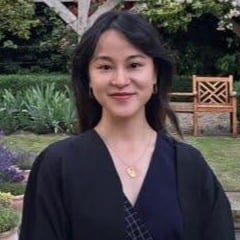Middle Ground: Japan’s Role in Bridging U.S.-China Competition in Senior MedTech
By Victoria Xiao
Presentation Abstract
As the global population ages, senior care is emerging as a critical frontier—not just in public health, but in geopolitics and investment strategy. China is expected to reach over 400 million people aged 60 or older by 2035. In the United States, one in five Americans will be 65 or older by 2030. These demographic shifts are pressuring healthcare systems and driving demand for medical technology, AI-enabled diagnostics, health IoT, and smart care infrastructure. While the U.S. and China race to dominate this space, one nation quietly leads: Japan.
With over 30% of its population already aged 65+, Japan is the world’s first true "super-aged" society. This reality has driven decades of innovation in eldercare—from robotics and AI caregiving to sensor-based health monitoring and smart homes. Importantly, Japan’s solutions are not only technologically advanced but embedded in a regulatory and cultural framework that emphasizes dignity, autonomy, and integration.
Japan’s unique position—as both a global leader in aging innovation and a politically neutral actor—makes it a strategic middle ground between the U.S. and China. Japanese firms like Cyberdyne, Panasonic, Toyota, and Fujitsu produce scalable, licensable technologies that meet both American market expectations and China’s systemic eldercare needs. For investors and corporate strategists, Japan offers access to cutting-edge IP without the political entanglements of direct U.S.-China tech exchange.
Beyond its domestic market, Japan is positioning itself as an “eldercare solutions exporter,” sharing care models and smart aging infrastructure with other aging economies across Asia and beyond. This creates a twofold investment opportunity: a stable, tech-driven domestic market, and a platform for global deployment.
This presentation will explore how Japan can serve as a strategic bridge and innovation partner in the global senior care economy. We will outline key technologies, highlight investment models, and identify cross-border pathways—such as licensing, co-development, and acquisition—to help U.S. and Chinese stakeholders leverage Japanese innovation.
In a world increasingly defined by geopolitical tension and demographic risk, Japan offers something rare: a trusted, technologically advanced, and politically stable foundation for the future of senior care.
About the Author

Victoria is a doctoral researcher at the University of Cambridge, where she studies the experiences of international Chinese students in the United States. Her research explores how anti-Asian racism and US–China geopolitical tensions shape students’ academic mobility, identity, and sense of belonging, adopting an asset-based perspective that foregrounds resilience and agency.
Beyond her research, Victoria has held several leadership roles. She served as President and Vice-President of the Queens’ College Postgraduate Committee (2023–2025) and as Events and Outreach Lead at King’s Politics, where she coordinated over 80 events with leading figures from academia, diplomacy, and industry. In 2024, she founded the Women in Geopolitics and Governance (2G) series, highlighting women’s contributions to policy and diplomacy. Her geopolitical risk analysis work earned recognition in the 2025 Mackinder Prize at Cambridge Judge Business School.
Her professional experience extends beyond Cambridge. She has also worked with UNESCO’s Education Department during its 42nd General Conference in Paris and volunteered as a teacher in Japan. Victoria’s academic and professional journey is underpinned by a longstanding passion for the intersections of art, media, and technology with human experience—an area that shaped her earlier studies prior to her doctoral research.
Building on her strengths in communication, people-centred leadership, and cross-cultural collaboration, Victoria aspires to a career where she can drive meaningful impact through human-centred engagement. She is particularly interested in roles that combine geopolitical analysis with practical applications, such as advising businesses on cross-cultural investment strategies and fostering cooperation across regions. With proven experience in bringing people together, from hosting high-profile events to leading diverse teams, she seeks to bridge business and society by enabling organisations to navigate complex global challenges while contributing to positive social and cultural outcomes.
